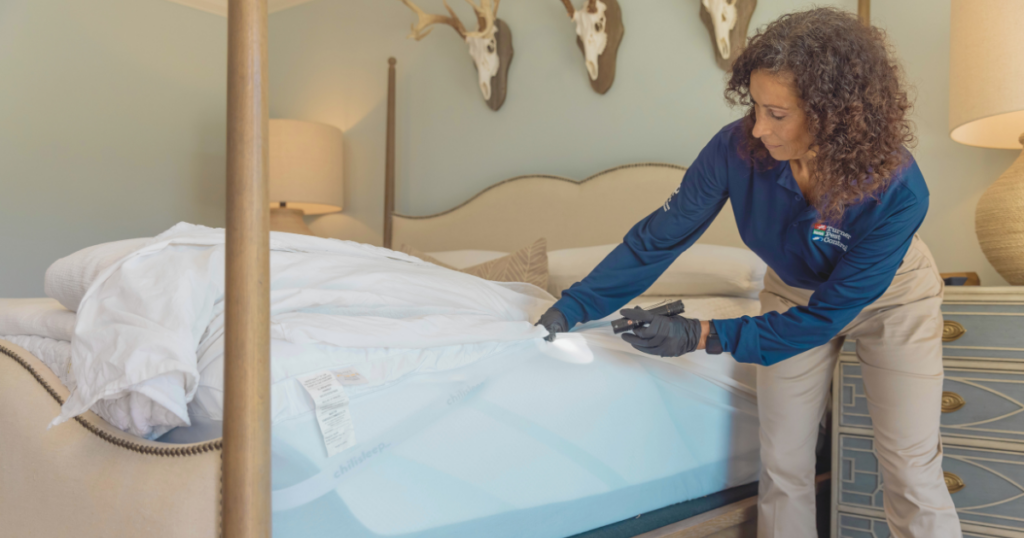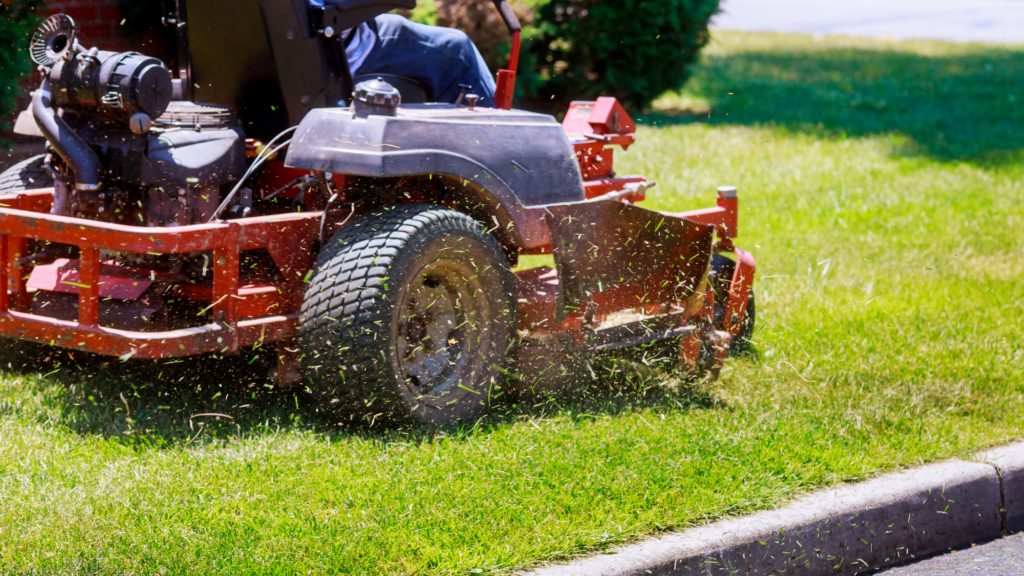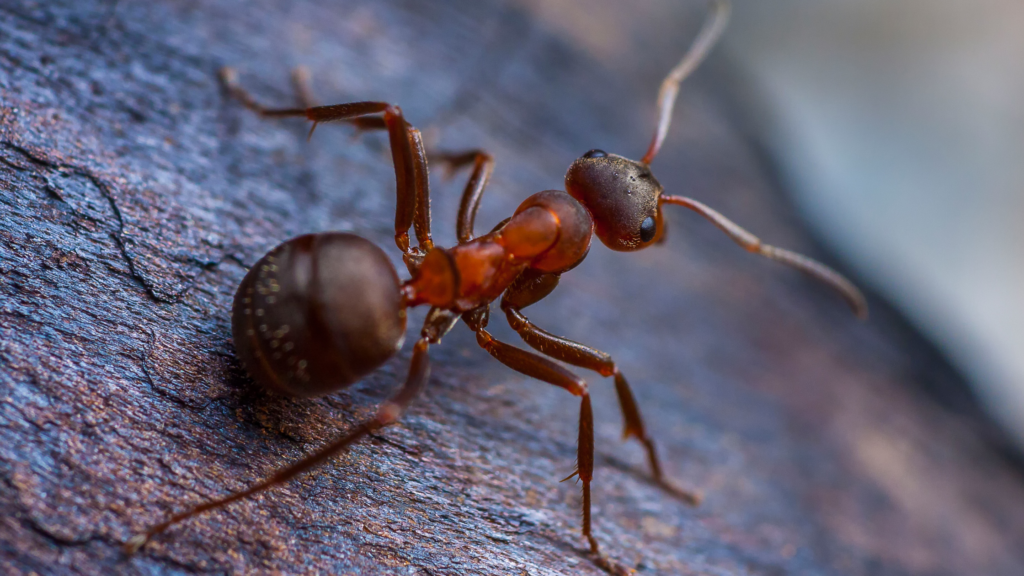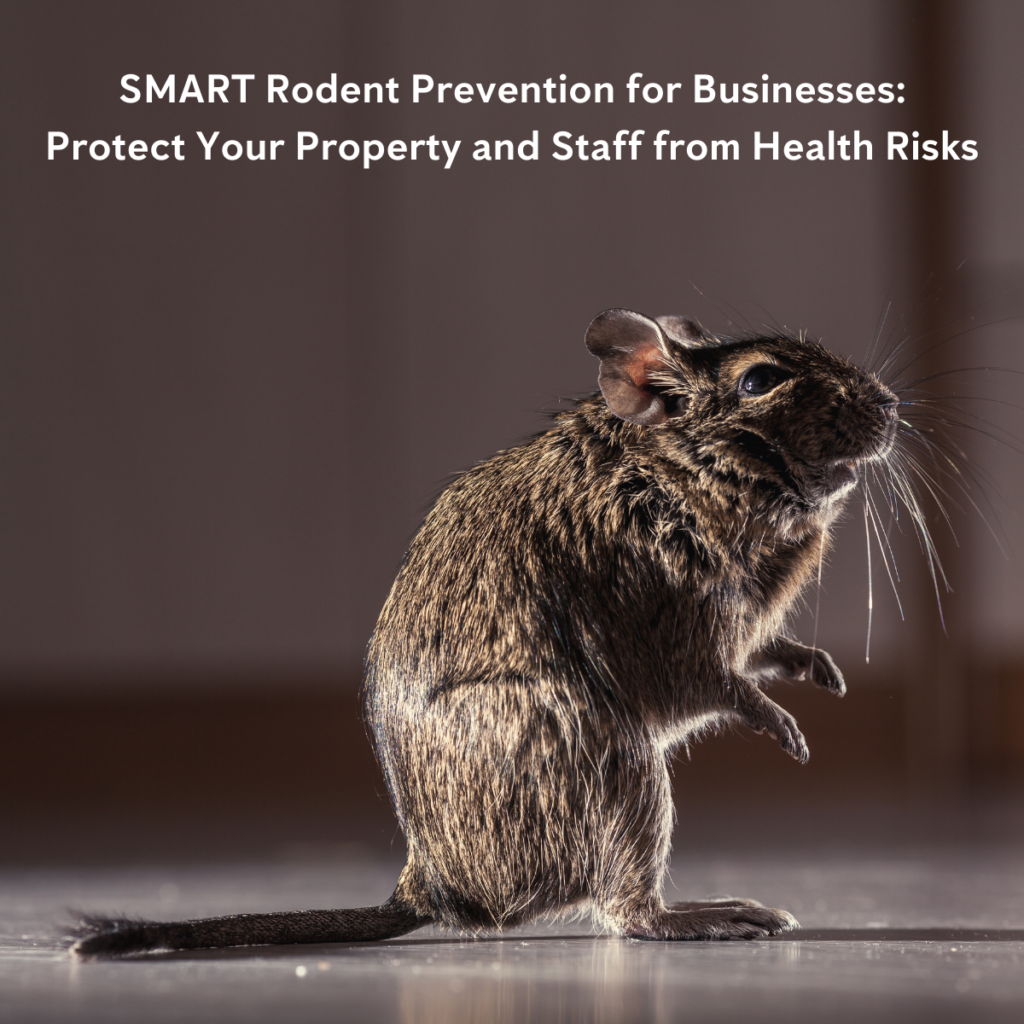An Introduction to Bed Bugs
Bed bugs are elusive insects that thrive in small spaces of homes, hotels, and other places where humans rest. These reddish-brown parasites have flat, oval bodies that hide in the tiniest crevices about the size of an apple seed.

Their favorite hiding spots include:
- Seams of mattresses
- Behind baseboards
- Inside electrical outlets
While their size and hiding skills make them hard to detect, the signs of their presence are unmistakable. Bed bugs feed exclusively on blood, emerging at night to bite unsuspecting sleepers, leaving behind itchy, red welts. Their persistence makes them incredibly unsettling—they can survive for months without feeding, patiently waiting for their next meal. Unlike some other pests, bed bugs don’t carry infectious diseases that can be spread to humans. But the stress and discomfort they cause can quickly turn a peaceful sleep or vacation into a source of anxiety.
Bed Bugs by the Numbers
In the mid-20th century, their numbers declined in America, possibly due to increased awareness and the use of pest control methods. However, their concerns have lessened in recent decades as their presence in homes has become rare. Yet, in the last few years, there has been a significant rise in reports across the United States.
Today, many people remain unaware of these pests. Some believe they are safe from infestations as long as they maintain a clean home, which is a misconception. Others think that bed bugs only affect lower-income households, but this is also false. Regardless of cleanliness, any home can become infected, underscoring the importance of education and action from bed bug treatment professionals on this issue.
Bed Bugs & Travel During The Holiday Season
Whether you’re traveling or being the gracious host, here’s the Turner Pest Bed Bug checklist:
For Travelers:
- When you pack your bags, do so on a clean, clutter-free surface. Using a clutter-free, hard surface for packing helps minimize the chance of bed bugs from your bed getting into your suitcase.
- Before packing, run all clothing through the dryer on high heat for at least 30 minutes. Taking your clothes for a hot spin in the dryer should kill any bed bugs that may have ended up on your clothing.
- Upon arriving at your destination, store your bags in your car or a garage. This reduces the risk of bed bugs crawling out of your luggage and entering the bedroom where you’ll be staying.
For Hosts:
- Store guest bags and clothing in areas less hospitable to bed bugs, such as cars, garages, covered porches, or basements.
- After guests leave, wash all bed linens and dry them on high heat for at least 30 minutes. Washing in hot water and drying on high-temperature heat will help eliminate any bed bugs that may have fallen off during their stay.
- Feel free to ask your guests where they stayed while traveling. Bed bugs and travel-related risks are widely known! Discuss their safety practices and inquire if they or their companions have noticed any unusual rashes or skin irritations.
- If you or anyone in your household suspects a bed bug issue, contact a professional service provider for a thorough and professional inspection (and we know the best one!).
Bed Bug Misconceptions
While bed bugs are a common issue associated with travel and can lead to infestations, it’s important to remember that they are not “dirty” insects. Stay calm and understanding—bed bug problems can happen to anyone!
What To Look For if You Think You Have Bed Bugs
Days after being bitten, you may notice a welt or itchy bump on your skin. Generally, when people wake up with a welt or itchy bump, they misattribute it to a mosquito or flea.
The following signs may indicate that the itchy bump is a bed bug bite:
- Bloody stains on bedding
- Dark-colored spots on sheets (which may be droppings)
- A sweet or musty odor in the room (from their scent glands)
- Shed skins (generally translucent in color)
Suspect a Bed Bug Bite or Infestation?
Holiday travel should be a time for relaxation and enjoying time with family and friends. By staying vigilant and following preventative measures, you may reduce your chance of bringing home unwanted bed bugs. Remember to pack wisely, inspect your accommodations, and take precautions when you return home.
If you encounter itchy, annoying bed bugs this season, turn to Turner. Fill out our free inspection form, and we can put this issue to bed.



